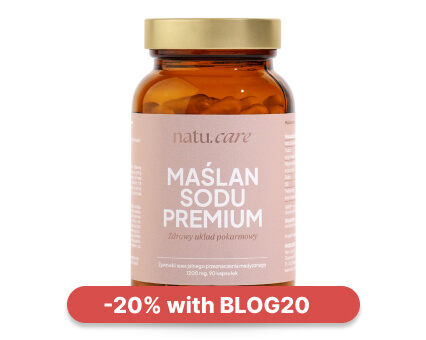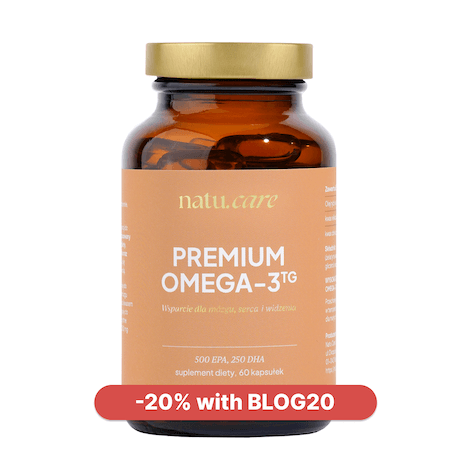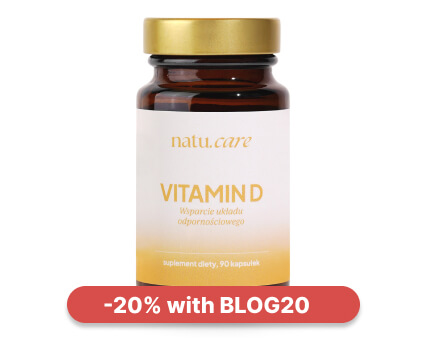WHO: Aspartame blacklisted. Is it carcinogenic?
Check out the latest WHO findings on the harmfulness of aspartame.


Learn more about our editorial process
.

Learn more about our editorial process
.

Learn more about our editorial process
.

Learn more about our editorial process
.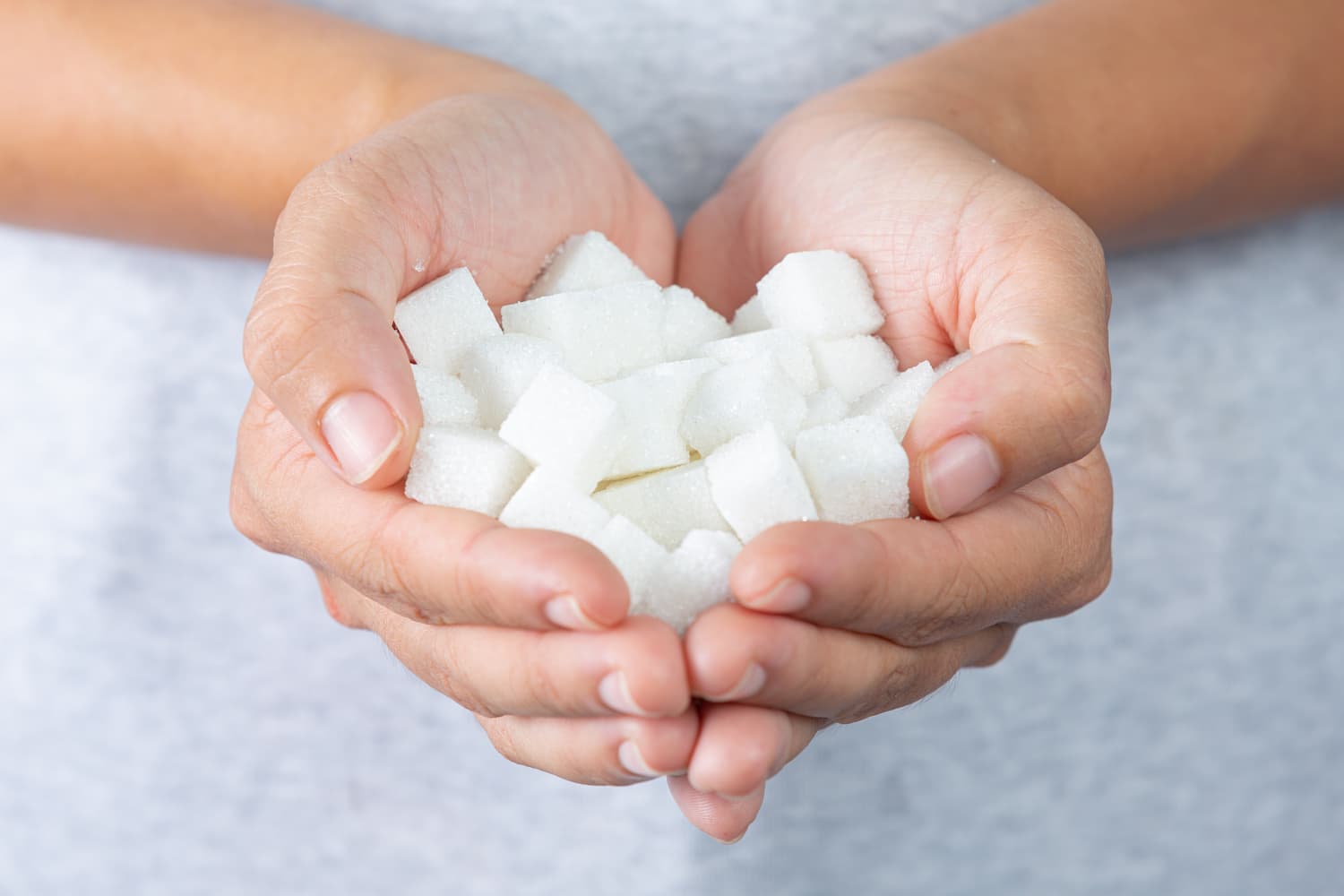
Why you can trust us
Articles on Natu.Care are written based on scientific research, data from government websites and other reliable sources. The texts are written in cooperation with doctors, nutritionists and other health and beauty experts. Articles are reviewed before publication and during significant updates.
.Learn more about our editorial process
.Information about advertisements
Content on Natu.Care may contain links to products from the sale of which we may receive a commission. When creating content, we adhere to high editorial standards and take care to be objective about the products discussed. The presence of affiliate links is not dictated by our partners, and we select the products we review ourselves completely independently.
.Learn more about our terms and Conditions
.You use sweeteners because they are healthier than sugar. The latest WHO report shows that this doesn't always have to be the case. Aspartame officially lands on the list of substances that may be carcinogenic.
If you are already standing over the dustbin holding all the diet drinks, yoghurts and sweetener you add to your tea - wait. The devil's not as scary as he's painted.
The devil's not as scary as he's painted.
From this article you will learn:
- What are the latest WHO findings on aspartame. .
- How the acceptable daily intake of aspartame in the diet has changed. .
- What side effects aspartame can cause. .
- How to limit its consumption. .
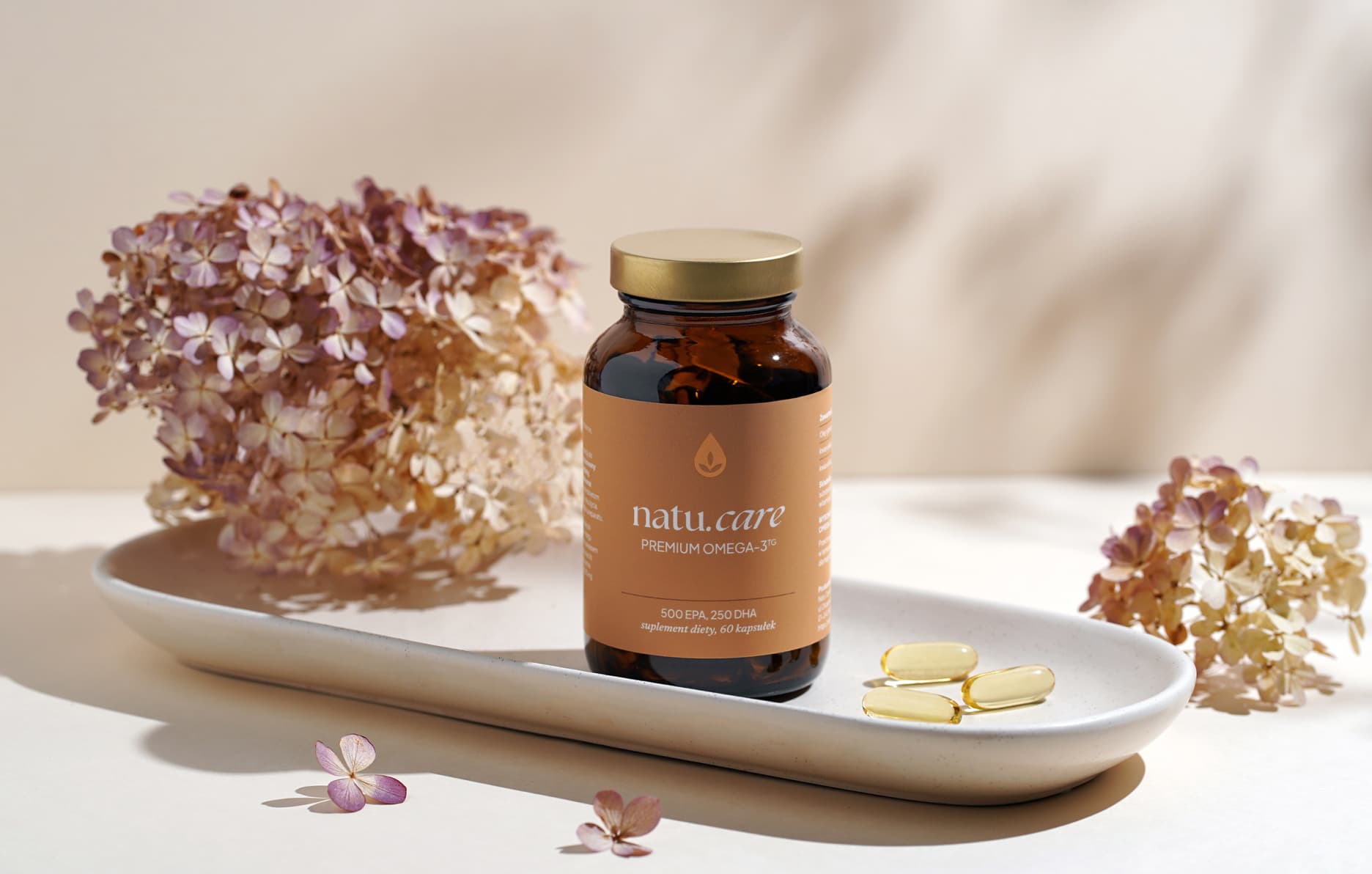
Sprawdź, za co pokochały go tysiące klientek Natu.Care Premium Omega-3ᵀᴳ -15% z kodem BLOG15
Natu.Care Omega-3ᵀᴳ Premium
Natu.Care Omega-3ᵀᴳ Premium dla zdrowia serca, mózgu i odporności. Najlepsza przyswajalność. Optymalna dawka 750 mg. Przebadana przez niezależne laboratorium.
Zobacz więcej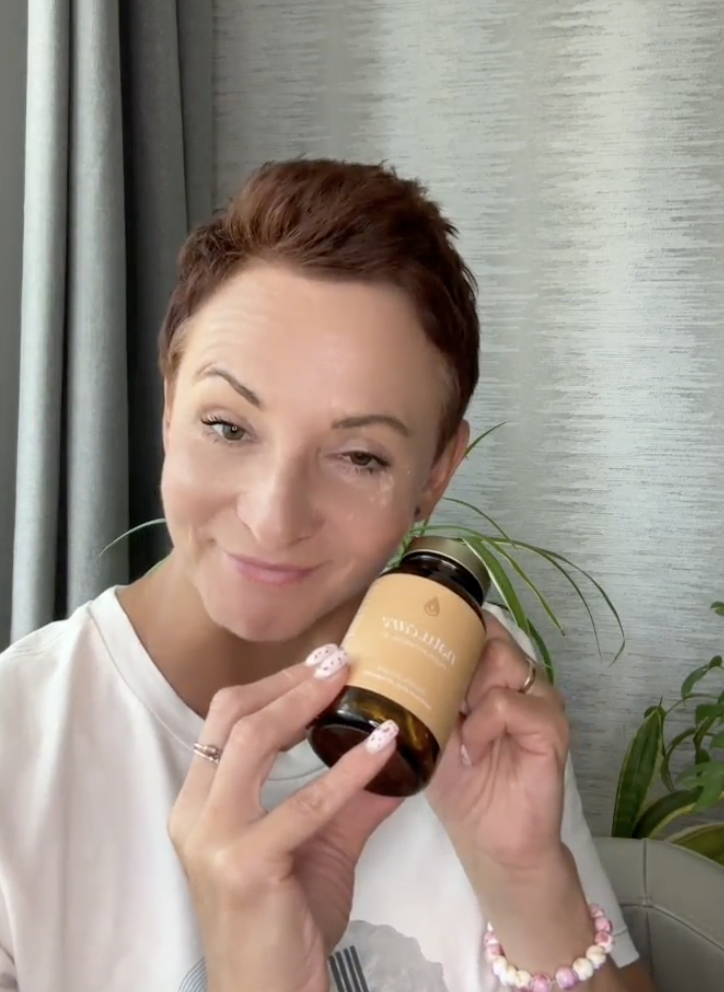
Produkt ma super skład, transparentną etykietę i co dla mnie jest ważne – małe kapsułki do połknięcia. Nie ma też nieprzyjemnego efektu odbijania rybą, który miałam spożywając inne produkty. Widzę znaczną poprawę odporności. Polecam!@Kasia P.
See also:
.- How to take care of your health? .
- All about blood tests
- Thyroid tests
- What are antioxidants and oxidative stress
- Cervical cancer
- Food waste in Poland and worldwide
WHO: aspartame carcinogenic
.The World Health Organisation (WHO) has long been looking at aspartame. It has now taken it under the microscope, analysing some 7,000 studies and expert opinions from around the world. Based on this, it published a report on 14 July 2023, adding aspartame to a group of products that may be carcinogenicand.
Does this mean we should get rid of popular sugar-free drinks immediately? Not necessarily.
"JECFA also considered the evidence on cancer risk, in animal and human studies, and concluded that the evidence for a link between aspartame consumption and cancer in humans is not convincing" - admitted Dr Moez Sanaa, head of the Food and Nutrition Division at WHO.
The WHO experts also point out that occasional consumption of aspartame is safe for most consumers, and that the addition of aspartame to the list of carcinogenic hazards is "raising a flag" and expressing the need for further robust research.
Classification of carcinogenic products according to WHO
.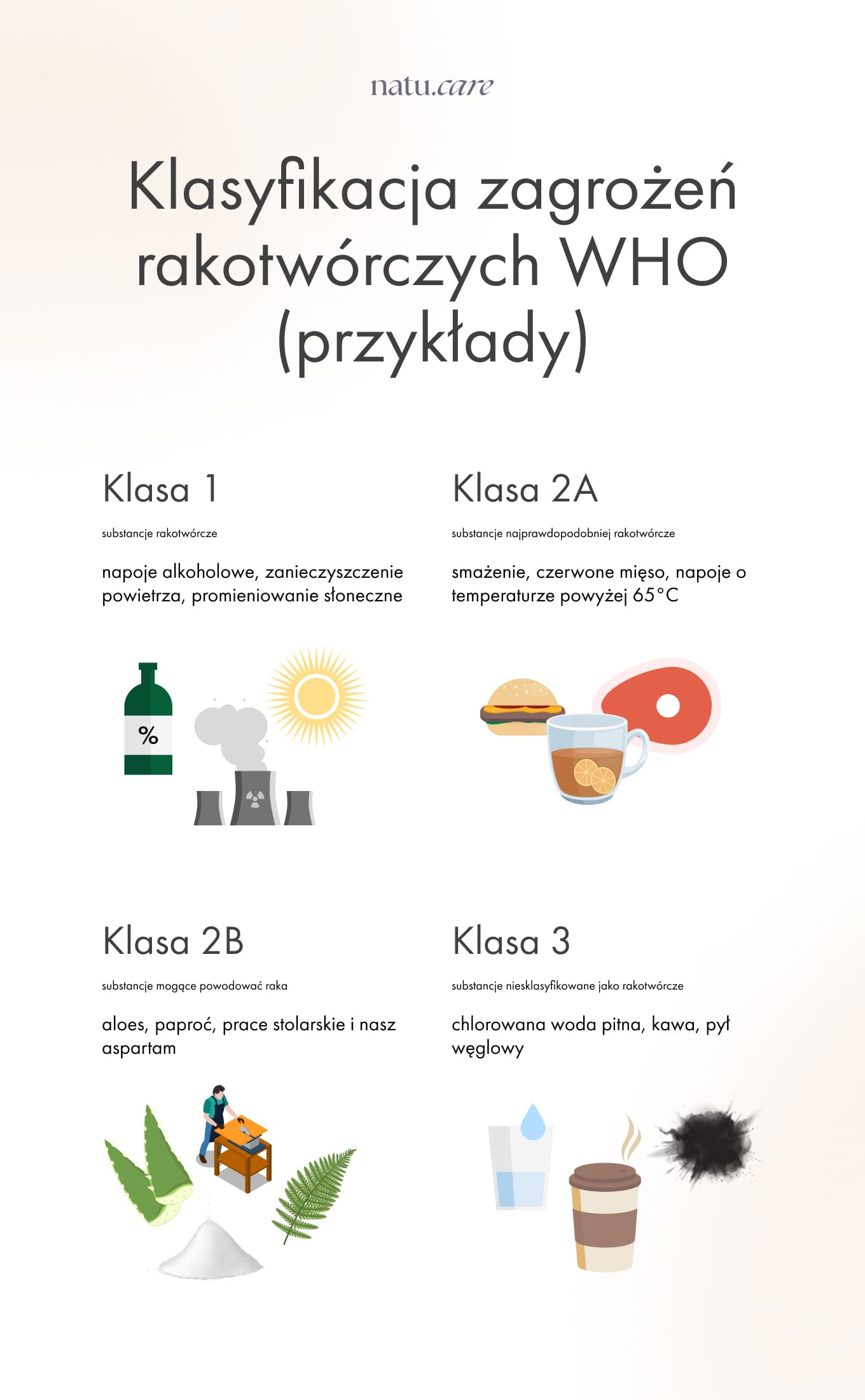
The WHO classifies products and substances with carcinogenic potential into four categoriesand:
- 1 - carcinogens (causes cancer) .
- 2A - substances that are probably carcinogenic (probably causes cancer) .
- 2B - substances that may cause cancer (possibly causes cancer) .
- 3 - substances not classified as a carcinogen (unclassifiable as a cancer risk) .
According to the latest report, aspartame has been assigned to category 2B, i.e. substances with possible carcinogenic effects. In the same group are, for example, diesel, phenoxy herbicides, methylmercury compounds... but also carpentry work, aloe vera, pickled cucumbers, ferns, cosmetics with coconut and 1108 other thingsand.
.If you have aloe vera or fern at home, don't throw the pot through the window just yet. After all, the carcinogenicity of substances is influenced by the way they are administered (e.g. some ingredients are only dangerous if they enter our respiratory tract) or by the daily dose. And it is this latter aspect that we should have the most questions about with aspartame.
.What is aspartame?
.First let's take a closer look at the new 'public enemy'. Aspartame is a table and industrial sweetener. It appears in product formulations under the designation E951. Its chemical name is Asp-Phe dipeptide methyl ester.
.Aspartame is characterised by its sweet taste, lack of caloric value and the fact that it does not raise blood glucoseand.
.Aspartame is about 200 times sweeter than sugar. Its sweetness is felt slightly later, but the sweet aftertaste lasts longer..
 .
.
Ilona Krzak Master of Pharmacy
It was originally used as a sugar substitute for diabetics. Later, the fit products industry also loved it. Nowadays, a large proportion of products labelled "sugar-free", "zero", "diet" or "light" contain aspartame in their ingredients.
It is particularly liked in chewing gums, due to its long-lasting aftertaste..
 .
.
Ilona Krzak Master of Pharmacy
Natu.Care Collagen Premium 5000 mg, mango & passion fruit

- Collagen content: 5000 mg marine collagen hydrolysate
- Additional active ingredients: vitamin C, low molecular weight hyaluronic acid (and L-theanine and coenzyme Q10 in cocoa flavoured collagen or vitamin A and vitamin E in mango–passion fruit flavoured collagen)
- Form: powder sachets
- Dose: 1 sachet per day
- Sufficient for: 30 days
Product description
Fish collagen from the Natu.Care brand in a dose of 5000 mg, based on certified ingredients of the best quality. Regular supplementation will positively influence the appearance of the skinóry, hairów and nails – they will be rebuilt and strengthened from the inside.
In addition to collagen, which is valuable for health and beauty, it also offers other active ingredients that help to maintain a youthful complexion, shiny hair and strong nails.
The formula contains a sufficient portion of the active ingredient to positively affect joints, the musculoskeletal system and immunity.
Natu.Care Premium Collagen is available in two flavours – Cacao Bloom and Rise&Shine. Both formulas are based on the following active ingredients: marine collagen hydrolysate, wild roseóbud extract and hyaluronic acid.
Additionally, Cacao Bloom contains natural L-theanine, coenzyme Q10 and defatted Dutch cacao. Rise&Shine instead contains vitamin E and vitamin A.
These are the best collagens in the world.
These best fish collagens on the market also rós taste – Cacao Bloom is a treat for chocolate lovers. Rise&Shine will appeal to those whoólike the refreshing taste of mangoófruit and passion fruit.
Pros and cons
Pros:
- Vitamin C supports the body's collagen production, enhancing its effectiveness.
- An effective dose of hyaluronic acid, which additionally supports skin hydration and joint health.
- Fish collagen absorbs 50% better. Additionally, the manufacturer specifies the fish species it is sourced from (Atlantic cod).
- The composition has been tested by the independent and accredited J.S. Hamilton laboratory.
- MSC (Marine Stewardship Council) quality certification, which confirms that the collagen source supports sustainable fishing practices.
Cons:
- None.
Additional information
Natu.Care's fish collagen receives praise for its delicious taste. You won't find the fishy aftertaste that often comes through in other collagens. Plus, you have two tasty flavors to choose from: cocoa and mango-passionfruit.
Active ingredients like coenzyme Q10, hyaluronic acid, and natural L-theanine provide anti-inflammatory and antioxidant benefits while slowing down aging processes.
User review
Super, after about 6 weeks of use, the skin on my face became noticeably firmer. Wonderful taste.
Ania ZalewskaNatu.Care customer
Natu.Care Premium collagen 10 000 mg, mango-maracuja
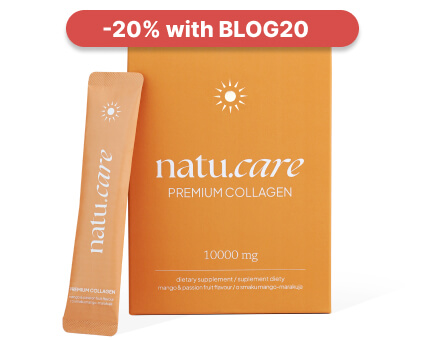
- Collagen content: 10,000 mg marine collagen hydrolysate
- Additional active ingredients: vitamin C, low molecular weight hyaluronic acid (and L-theanine and coenzyme Q10 in cocoa flavoured collagen or vitamin A and vitamin E in mango–passion fruit flavoured collagen)
- Form: powder sachets
- Dose: 1 sachet per day
- Sufficient for: 30 days
Product description
One of the strongest collagens on the market, whichós provides as much as 10,000 mg in a daily serving. This allows the formula to effectively support the condition of the skin, hair and nails.
With this supplement, you will support your beauty, which will allow you to visually stop the ageing process and feel a second youth!
Natu.Care Collagen Premium 10 000 mg comes in two flavours – cherry and mango-maracuja. Both formulas have the same product backbone – collagen, hyaluronic acid and vitamin C.
In the cherry version you additionally find glucosamine, chondroitin and Indian frankincense resin extract. Mango-maracuja, on the other hand, contains vitamin E and vitamin A.
Pros and cons
Pros:
- Tested collagen formula – SeaGarden, whose effects have been confirmed in clinical studies.
- Effective dose of hyaluronic acid, additionally moisturizing the skin and positively impacting joint health.
- Vitamin C supports the body’s natural collagen production.
- The composition has been tested by the independent and accredited J.S. Hamilton laboratory.
- The product has an MSC (Marine Stewardship Council) quality certification – the collagen source supports sustainable fishing practices.
Cons:
- None.
Additional information
Users praise Natu.Care Collagen Premium for the easy dissolvability of the powder.
User review
I noticed a significant improvement in my skin texture after a few weeks of taking collagen regularly. My complexion is now as soft as velvet!
Natu.Care Collagen Premium 10000 mg, cherry

- Collagen content: 10,000 mg of hydrolyzed bovine collagen
- Additional active ingredients: vitamin C, low molecular weight hyaluronic acid, glucosamine, chondroitin, extract of Indian frankincense resin (boswellia serrata)
- Form: powder sachets for drinking
- Serving: 1 sachet per day
- Lasts for: 30 days
Product description
One of the strongest collagens on the market, providing as much as 10,000 mg per daily serving. This product can effectively support the condition of joints, skin, hair, and nails.
With this supplement, you will support your skeletal and joint system as well as your beauty, helping you visually halt the aging process and feel rejuvenated!
Pros and cons
Pros:
- The daily portion of collagen is very large – as much as 10,000 mg.
- Proven collagen formula – COLLinstant, whose effectiveness has been confirmed in clinical studies.
- Effective dose of hyaluronic acid, which additionally moisturizes the skin and positively affects joint health.
- Vitamin C supports the body's natural collagen production.
- Glucosamine is a fundamental building block of compounds found in joint cartilage and a component of collagen that gives elasticity to connective tissue in tendons.
- Chondroitin is a natural component found in the human body, mainly in cartilage. This large molecule (mucopolysaccharide) has the ability to absorb water, which helps maintain the elasticity and resilience of cartilage.
- Frankincense resin extract supports blood circulation and joint mobility and reduces their stiffness. It may help alleviate inflammatory conditions.
- The composition has been tested by the independent and accredited J.S. Hamilton laboratory.
Cons:
- None.
Additional information
Users praise Natu.Care Collagen Premium for the easy dissolving of the powder.
Premium Sodium Butyrate
Product description
Premium Sodium Butyrate is a natural support for your digestive system. With a high dose of butyric acid (940 mg), it supports the regeneration of the intestinal mucosa, improving gut health and function, and aids in the absorption of nutrients. By taking care of your intestines, you're taking care of the health of your entire body.
Studies involving people suffering from irritable bowel syndrome confirm that sodium butyrate is ideal for supporting issues related to bacterial flora imbalances (for example, after antibiotic therapy), constipation and diarrhea, inflammation of the intestinal mucosa, or a diet low in fiber.
Premium Sodium Butyrate capsules are made using the innovative DRcaps® technology. This guarantees that the active ingredients in the product are protected from the destructive effects of stomach acids and digestive enzymes. As a result, we can be sure that the beneficial ingredients are released in the small intestine and are fully absorbed by our body.
Premium Sodium Butyrate from Natu Care is 100% tested, and its composition contains only the highest quality raw materials.
Pros and cons
Pros:
- Supports digestive system function
- Helpful for various gastrointestinal conditions, including IBS
- High dose of butyric acid in each capsule
- Eco-friendly, clean, and tested composition
- Free from added sugar, gluten, GMOs, and lactose
- Innovative capsule technology - DRcaps
Cons:
- None
Additional Information
Take 3 capsules daily at any time of the day, preferably with a meal. Swallow the capsules whole with water.
Premium Sodium Butyrate is intended for adults.
The product should be used under medical supervision.
User review
I've been using the product for 2 weeks. My stomach feels lighter, and my digestion has improved. I recommend it.
Natu.Care Premium Magnesium + Vitamin B6
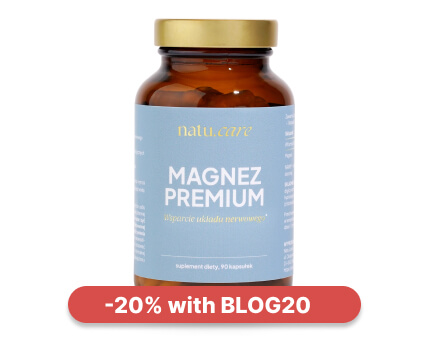
- Magnesium content per day: 305 mg
- Additional active ingredients: Vitamin B6 (2.1 mg)
- Form: capsules
- Serving size: 3 capsules per day
- Sufficient for: 30 days
Product description
The Premium Magnesium + Vitamin B6 dietary supplement is a comprehensive product that combines three organic forms of magnesium (citrate, malate, and diglycinate) and vitamin B6 in highly absorbable forms.
Magnesium is an essential mineral without which our bodies cannot function properly. It supports the immune, nervous, and muscular systems, maintains electrolyte balance, and is involved in cell division and the regulation of mental functions.
Research shows that magnesium supplementation is even more effective when accompanied by vitamin B6, which is included in our product. Vitamin B6 is responsible for the proper functioning of the nervous and immune systems, as well as the proper functioning of the heart.
If you want to safely get rid of feelings of fatigue, concentration problems, hair loss, muscle cramps, trembling, or irritability, reach for Premium Magnesium from Natu.Care, tested by the independent, certified laboratory J.S. Hamilton Poland.
Pros and cons
Pros
- Supports the proper functioning of the nervous and immune systems.
- Reduces feelings of fatigue and tiredness.
- Maintains proper psychological functions.
- The purity of the ingredients (free from anti-caking agents, artificial fillers, and additives such as titanium dioxide, microcrystalline cellulose, talc, magnesium stearate, and silicon dioxide) has been confirmed by laboratory tests.
- High absorption of ingredients.
- Soft capsules that are easy to swallow.
- Suitable for vegetarians and vegans.
Cons
- None.
Additional information
Take with a meal, 3 capsules per day.
The capsules should be taken with at least 250 ml of water.
If you have trouble sleeping, it is advisable to take 1 capsule in the morning and 2 capsules in the evening, no later than 4 hours before bedtime.
Avoid combining with products high in calcium (milk, yogurt, cheese), as this may negatively affect magnesium absorption.
Pregnant and breastfeeding women should consult a doctor before starting supplementation.
User review
I’m very impressed with the speed of delivery. The product itself is of high quality and absorbs well. After two weeks of supplementation, I’ve noticed a significant improvement in muscle recovery, especially during periods of intense training. I highly recommend it!
Product description
The dietary supplement contains omega-3ᵀᴳ, or omega-3 acids in the form of trójglyceridesów. Scientific studies suggest that this form of fatty acidsós up to 2 times better absorbed than the estersós present in many dietary supplements on the market. This means that you are assured of their effectiveness and of supplying yourself with valuable omega acids.
Fatty acids omega-3 are derived from wild anchovy oil. It is a rich source of healthy fats that are essential for the health of the cardiovascular, immune and nervous systems, as well as the proper function of vision, joints muscles.
Scientific research suggests that wild anchovies are a good source of healthy fats.
Scientific research also suggests that an adequate intake of omega-3 fatty acidsós protects against and supports the treatment of depression and anxiety disorders. In addition, omega-3s influence the hydration and appearance of the skinóry and support healthy sleep.
.
The formula contains a total of 750 mg of EPA+DHA acidsós, which is three times higher than the recommended minimum of 250 mg for the Polish population. Omega-3 TG Premium has studies indicating that its TOTOX is 9, which is a very good result.
Supplementation of omega-3 fatty acidsóis recommended for anyone who does not eat 1–2 portions (approximately 300 g) of oily fish per week. Children during growth, seniors, physically active people, vegans and vegetarians, as well as patients undergoing cardiovascular treatment and prevention of heart disease also have an increased need.
Pros and cons
The dietary supplement contains omega-3ᵀᴳ, or omega-3 acids in the form of trójglyceridesów. Scientific studies suggest that this form of fatty acidsós up to 2 times better absorbed than the estersós present in many dietary supplements on the market. This means that you are assured of their effectiveness and of supplying yourself with valuable omega acids.
Fatty acids omega-3 are derived from wild anchovy oil. It is a rich source of healthy fats that are essential for the health of the cardiovascular, immune and nervous systems, as well as the proper function of vision, joints muscles.
Scientific research suggests that wild anchovies are a good source of healthy fats.
Scientific research also suggests that an adequate intake of omega-3 fatty acidsós protects against and supports the treatment of depression and anxiety disorders. In addition, omega-3s influence the hydration and appearance of the skinóry and support healthy sleep.
.
The formula contains a total of 750 mg of EPA+DHA acidsós, which is three times higher than the recommended minimum of 250 mg for the Polish population. Omega-3 TG Premium has studies indicating that its TOTOX is 9, which is a very good result.
Supplementation of omega-3 fatty acidsóis recommended for anyone who does not eat 1–2 portions (approximately 300 g) of oily fish per week. Children during growth, seniors, physically active people, vegans and vegetarians, as well as patients undergoing cardiovascular treatment and prevention of heart disease also have an increased need.
Additional information
The dietary supplement contains omega-3ᵀᴳ, or omega-3 acids in the form of trójglyceridesów. Scientific studies suggest that this form of fatty acidsós up to 2 times better absorbed than the estersós present in many dietary supplements on the market. This means that you are assured of their effectiveness and of supplying yourself with valuable omega acids.
Fatty acids omega-3 are derived from wild anchovy oil. It is a rich source of healthy fats that are essential for the health of the cardiovascular, immune and nervous systems, as well as the proper function of vision, joints muscles.
Scientific research suggests that wild anchovies are a good source of healthy fats.
Scientific research also suggests that an adequate intake of omega-3 fatty acidsós protects against and supports the treatment of depression and anxiety disorders. In addition, omega-3s influence the hydration and appearance of the skinóry and support healthy sleep.
.
The formula contains a total of 750 mg of EPA+DHA acidsós, which is three times higher than the recommended minimum of 250 mg for the Polish population. Omega-3 TG Premium has studies indicating that its TOTOX is 9, which is a very good result.
Supplementation of omega-3 fatty acidsóis recommended for anyone who does not eat 1–2 portions (approximately 300 g) of oily fish per week. Children during growth, seniors, physically active people, vegans and vegetarians, as well as patients undergoing cardiovascular treatment and prevention of heart disease also have an increased need.
Expert opinion
The dietary supplement contains omega-3ᵀᴳ, or omega-3 acids in the form of trójglyceridesów. Scientific studies suggest that this form of fatty acidsós up to 2 times better absorbed than the estersós present in many dietary supplements on the market. This means that you are assured of their effectiveness and of supplying yourself with valuable omega acids.
Fatty acids omega-3 are derived from wild anchovy oil. It is a rich source of healthy fats that are essential for the health of the cardiovascular, immune and nervous systems, as well as the proper function of vision, joints muscles.
Scientific research suggests that wild anchovies are a good source of healthy fats.
Scientific research also suggests that an adequate intake of omega-3 fatty acidsós protects against and supports the treatment of depression and anxiety disorders. In addition, omega-3s influence the hydration and appearance of the skinóry and support healthy sleep.
.
The formula contains a total of 750 mg of EPA+DHA acidsós, which is three times higher than the recommended minimum of 250 mg for the Polish population. Omega-3 TG Premium has studies indicating that its TOTOX is 9, which is a very good result.
Supplementation of omega-3 fatty acidsóis recommended for anyone who does not eat 1–2 portions (approximately 300 g) of oily fish per week. Children during growth, seniors, physically active people, vegans and vegetarians, as well as patients undergoing cardiovascular treatment and prevention of heart disease also have an increased need.
Natu.Care Vitamin D 2000 UI
Product description
Vitamin D plays a crucial role in our health and well-being. It affects calcium and phosphate metabolism, which translates to healthy bones and teeth. It also helps regulate the immune system, and studies indicate its influence on the functioning of the nervous system.
Vitamin D, although called a “vitamin,” is actually a prohormone that our body produces on its own, primarily under the influence of sunlight. Unfortunately, our modern lifestyle contributes to deficiencies of this essential vitamin. Working in enclosed office buildings, using (necessary!) SPF creams, and covering the body with clothing all make it very difficult, if not impossible, to obtain adequate levels of vitamin D from sunlight. This is why appropriate, year-round supplementation is so crucial.
Vitamin D from Natu.Care is a well-tested vitamin D3 suspended in safflower oil, a plant known for its numerous health benefits. The convenient, easy-to-swallow capsule will make supplementation a part of your daily, healthy routine, improving your overall well-being.
Pros and cons
Pros:
- Ensures proper functioning of the immune system
- Supports the maintenance of healthy bones and teeth
- Maintains proper heart, kidney, and muscle function
- Tested by an independent, certified laboratory
- Convenient and easy-to-swallow capsule
- Clean composition - free from added sugar, gluten, GMOs, lactose, and without preservatives or colorants
Cons:
- None.
Additional Information
Pregnant women and breastfeeding mothers should consult a doctor before using the product. This dietary supplement is intended for a healthy adult population up to the age of 75.
Collagen Booster - Glow Stories
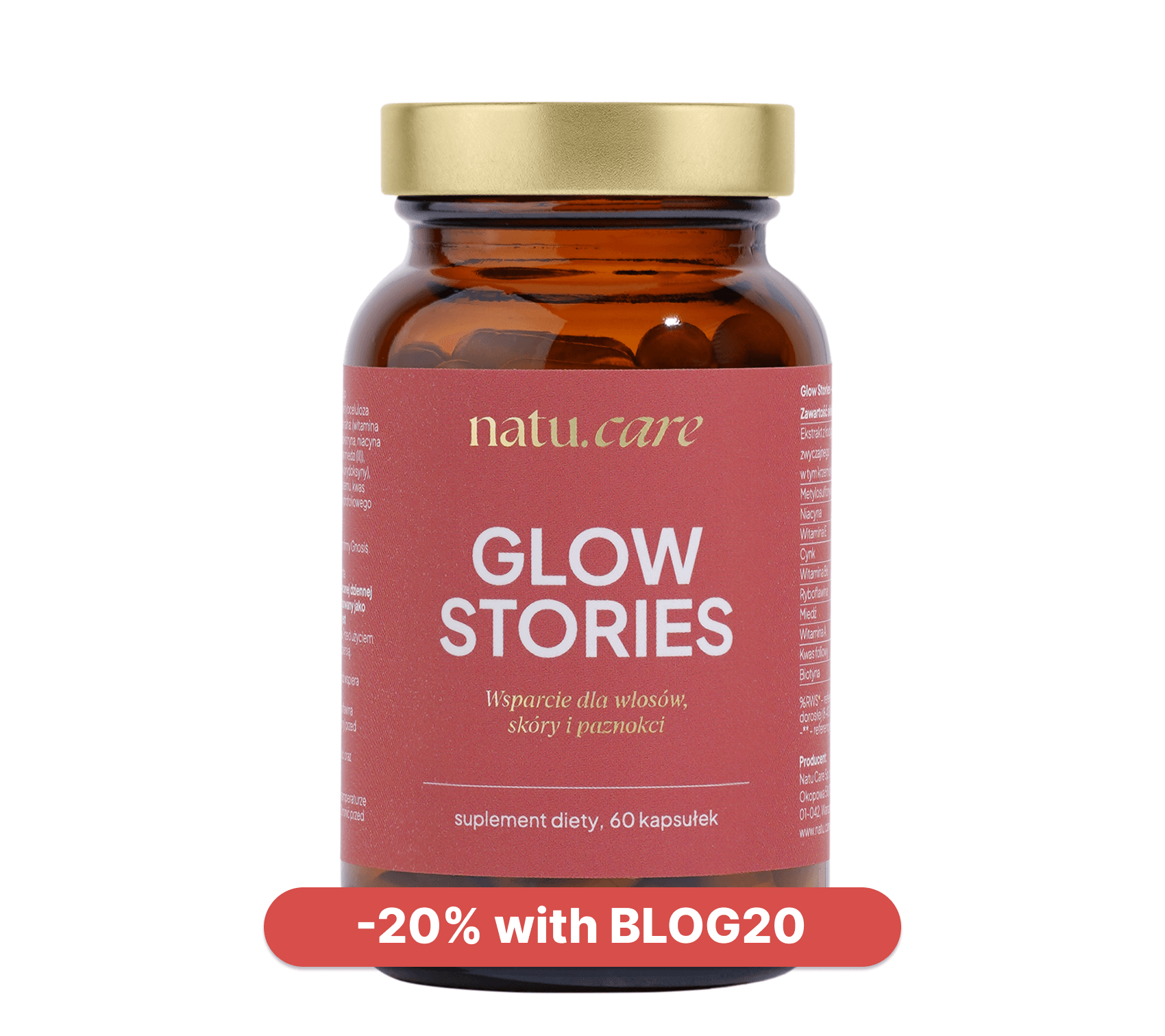
- Active ingredients: bamboo shoot extract, Quatrefolic®, L-Methionine, L-cysteine, vitamin E, vitamin A, niacin (vitamin B3), vitamin B6, vitamin B2 (riboflavin), biotin, zinc, copper
- .
- Form: capsules
- .
- Dose: 1 capsule per day
- .
- Sufficient for: 60 days
- .
Product description
A dietary supplement containing vitamins, minerals and plant extracts thatósupport the skinóhand, hair and nails. The product is especially distinguished by the form of folate – it is Quatrefolic, whichós absorbed very well and is natural.
In addition to valuable vitamins and minerals, such as vitamin A, E, B3, B2 and biotin, the formula contains bamboo shoot extract, whichóry further enhances your beauty.
Pros and cons
A dietary supplement containing vitamins, minerals and plant extracts thatósupport the skinóhand, hair and nails. The product is especially distinguished by the form of folate – it is Quatrefolic, whichós absorbed very well and is natural.
In addition to valuable vitamins and minerals, such as vitamin A, E, B3, B2 and biotin, the formula contains bamboo shoot extract, whichóry further enhances your beauty.
Additional information
A dietary supplement containing vitamins, minerals and plant extracts thatósupport the skinóhand, hair and nails. The product is especially distinguished by the form of folate – it is Quatrefolic, whichós absorbed very well and is natural.
In addition to valuable vitamins and minerals, such as vitamin A, E, B3, B2 and biotin, the formula contains bamboo shoot extract, whichóry further enhances your beauty.
Suggested maximum daily intake of aspartame
.In 1981, JECFA set the acceptable intake of aspartame at 40 milligrams per kilogram of body weight per dayand. This means that a person weighing 70 kilograms can safely consume 2.8 grams of aspartame per day. Is this a lot?"
A good example would be popular sugar-free fizzy drinks. The aspartame content in these varies from 50 mg to 125 mg per glass (230 ml). Assuming the highest aspartame concentration (125 mg) - there is approximately 0.8 g of aspartame in a large bottle (1.5 l) of the drink. This is quite far from the permissible limit. To reach the upper limit, our theoretical average person would have to drink 5.25 litres of such a drink (i.e. 3.5 bottles of our equally theoretical orangeade).
Yes, some 21 glasses.

There are, however, situations when, in addition to a drink, we happen to eat some fit bar sweetened with aspartame or other snacks and then it is easy to overdo the intake of this substance..
 .
.
Ilona Krzak Master of Pharmacy
Updated JECFA recommendation on aspartame
.According to a new JECFA report published alongside the WHO report, the acceptable amount of aspartame in a daily serving remains unchangedand. Despite aspartame's classification as a category 2B carcinogen on the list of carcinogenic hazards, the researchers did not find sufficient evidence to justify limiting the acceptable daily intake of this sweetener.
It is also worth noting that the US Food and Drug Administration disagrees with the recognition of aspartame as a potential carcinogen. It also allows a higher amount for daily consumption - 50 mg per kilogram of body weightand.
Can aspartame be safe if it is on such a list?
.Does aspartame harm health? According to the current state of medical knowledge: used in appropriate daily portions - rather notand. It is difficult to answer this question with certainty and unequivocally, as researchers have to rely on population studies in which it is very difficult to grasp the cause-effect relationship. One thing we can be sure of is that aspartame is harmful to people who suffer from phenylketonuria.
People with phenylketonuria, a genetic disorder in which patients cannot convert phenylalanine to tyrosine, must avoid aspartame absolutely..
 .
.
Ilona Krzak Master of Pharmacy
What to replace aspartame with
.If you are using sugar substitutes for the sake of your figure, according to the WHO... you can stopand. In its latest recommendations, the World Health Organisation has retreated from such recommendations. Instead, it has replaced them with a common-sense approach to the use of sugar in diet - we should limit it from an early age.
There are theories that the use of sweeteners is not at all a good step in the fight against obesity, as they fuel hunger and therefore further calorie consumption..
 .
.
Ilona Krzak Master of Pharmacy
Additionally, the use of sweeteners "doesn't teach" that the taste of sugar is actually negative, as it hides obesity and metabolic diseases, adds pharmacist.
So the best solution seems to be simply to eat a healthy, balanced diet and to satisfy the appetite for sweet flavours with fruit. And when it comes to diet drinks...
.The healthiest option is water. For flavour, you can add lemon juice or some fruit, mint or lemon balm leaves - creating your own flavoured water..
 .
.
Ilona Krzak Master of Pharmacy
See also:
.Summary
.- The WHO has listed aspartame as a substance that is potentially carcinogenic (category 2B).
- The safety of aspartame depends primarily on its daily intake. JECFA has maintained the permissible daily intake of aspartame in the diet at 40 mg per kilogram of body weight.
- To limit your intake of aspartame - and other sweeteners, including sugar itself - check the ingredients of the products you buy. Take care to eat a healthy diet, and choose water above all for drinking. .
FAQ
.How many kilocalories does aspartame have?
.There are as many kilocalories in 100 grams of aspartame as in 100 grams of... sugar - 400! However, it has been declared a "calorie-free" substance because it is 200 times sweeter than sugar - instead of a teaspoonful, just a tiny pinch is enough.
Where is aspartame banned?
.The European Union allows aspartame to be used as a sugar substitute in food, but some countries have restrictions or bans. In France, aspartame is banned in sweetened beverages. In Germany, it is not used in foods for infants and young children. In the UK, aspartame is used widely, but manufacturers are obliged to put a note to this effect on packaging.
How much aspartame is in Coke Zero?
.There are 58 mg of aspartame in a glass (230 ml) of this drink. This is more than twice as much as Cola Light. This means that a large bottle of Cola Zero (1.5 l) contains less than 0.4 g of aspartame.
In which products is aspartame found?
.Aspartame is often used as a sweetener in low-calorie drinks: fizzy drinks, fruit juices or energy drinks. It can also be found in food products such as yoghurts, desserts, candies, jelly beans, sugar-free chewing gum and ice cream. Aspartame can also be used to sweeten lozenges.
What is aspartame used for?
.Aspartame is used as an artificial sweetener in food products and diet drinks. It is used as a substitute for sugar because it is much sweeter. It provides products with a sweet taste while reducing their calories.
Is aspartame healthier than sugar?
.Both aspartame and sugar have their advantages and disadvantages. In theory, if you want to reduce the number of calories in your diet, aspartame would be a better option. Unfortunately, in practice, this calorie reduction may not be enough - the WHO does not currently recommend the use of sweeteners. Nevertheless, for people with diabetes, the benefits of swapping sugar for aspartame may have merit.
Which sweetener is healthiest?
.It is best not to use any sweetener, simply put. In creating this text, we've searched for suitable substitutes, but each potentially has something behind it. The best thing to do is learn to enjoy the natural sweetness of fruit and dairy and vegetables. The best dietary advice remains: eat a variety, don't overdo it, and be colourful on your plate. If you eat something sweet for a special occasion, everything will be OK.
.Sources
.See all
.Aspartame hazard and risk assessment results released. (n.d.). Retrieved 14 July 2023, fromhttps://www.who.int/news/item/14-07-2023-aspartame-hazard-and-risk-assessment-results-released
Czarnecka, K., Pilarz, A., Rogut, A., May, P., Szymańska, J., Olejnik, Ł., & Szymański, P. (2021). Aspartame-True or False? Narrative Review of Safety Analysis of General Use in Products. Nutrients, 13(6), Article 6.https://doi.org/10.3390/nu13061957
Heinich, A. (2022, February 13). Aspartame E951. What does scientific research say about whether it is harmful? DIETARY ORG EN.https://dietetycy.org.pl/aspartam-e951-badania/
Huang, S.-Y., Sun, R., Chen, Y.-C., Kang, L., Wang, C.-T., Chiu, C.-F., & Wu, H.-T. (2023). Aspartame consumption during pregnancy impairs placenta growth in mice through sweet taste receptor-reactive oxygen species-dependent pathway. The Journal of Nutritional Biochemistry, 113, 109228.https://doi.org/10.1016/j.jnutbio.2022.109228
Landrigan, P. J., & Straif, K. (2021). Aspartame and cancer - new evidence for causation. Environmental Health, 20(1), 42.https://doi.org/10.1186/s12940-021-00725-y
List of Classifications - IARC Monographs on the Identification of Carcinogenic Hazards to Humans. (n.d.). Retrieved 13 July 2023, fromhttps://monographs.iarc.who.int/list-of-classifications/
List of classifications - IARC Monographs on the identification of carcinogenic hazards to humans. (n.d.). Downloaded 13 July 2023, fromhttps://monographs.iarc.who.int/list-of-classifications/
Roberts, H. J. (1988). Neurological, Psychiatric, and Behavioral Reactions to Aspartame in 505 Aspartame Reactors. In R. J. Wurtman & E. Ritter-Walker (Ed.), Dietary Phenylalanine and Brain Function (pp. 373-376). Birkhäuser.https://doi.org/10.1007/978-1-4615-9821-3_45
Rodrigues, H., Silva, C., & Martel, F. (2022). The effects of aspartame on the HTR8/SVneo extravillous trophoblast cell line. Reproductive Biology, 22(3), 100678.https://doi.org/10.1016/j.repbio.2022.100678
says, S. F. (2023, June 29). WHO to declare artificial sweetener aspartame as possible carcinogen. News-Medical.net.https://www.news-medical.net/news/20230629/WHO-to-declare-artificial-sweetener-aspartame-as-possible-carcinogen.aspx
.WHO | JECFA. (n.d.-a). Downloaded 13 July 2023, fromhttps://apps.who.int/food-additives-contaminants-jecfa-database/Home/Chemical/3018
WHO | JECFA. (n.d.-b). Retrieved 13 July 2023, fromhttps://apps.who.int/food-additives-contaminants-jecfa-database/Home/Chemical/62
Pavanello, S., Moretto, A., La Vecchia, C., & Alicandro, G. (2023). Non-sugar sweeteners and cancer: Toxicological and epidemiological evidence. Regulatory Toxicology and Pharmacology, 139, 105369.https://doi.org/10.1016/j.yrtph.2023.105369
Nutrition, C. for F. S. and A. (2023). Aspartame and Other Sweeteners in Food. FDA.https://www.fda.gov/food/food-additives-petitions/aspartame-and-other-sweeteners-food
Editorials
Meet the team

Ilona Krzak obtained her Master of Pharmacy degree from the Medical University of Wrocław. She did her internship in a hospital pharmacy and in the pharmaceutical industry. She is currently working in the profession and also runs an educational profile on Instagram: @pani_z_apteki

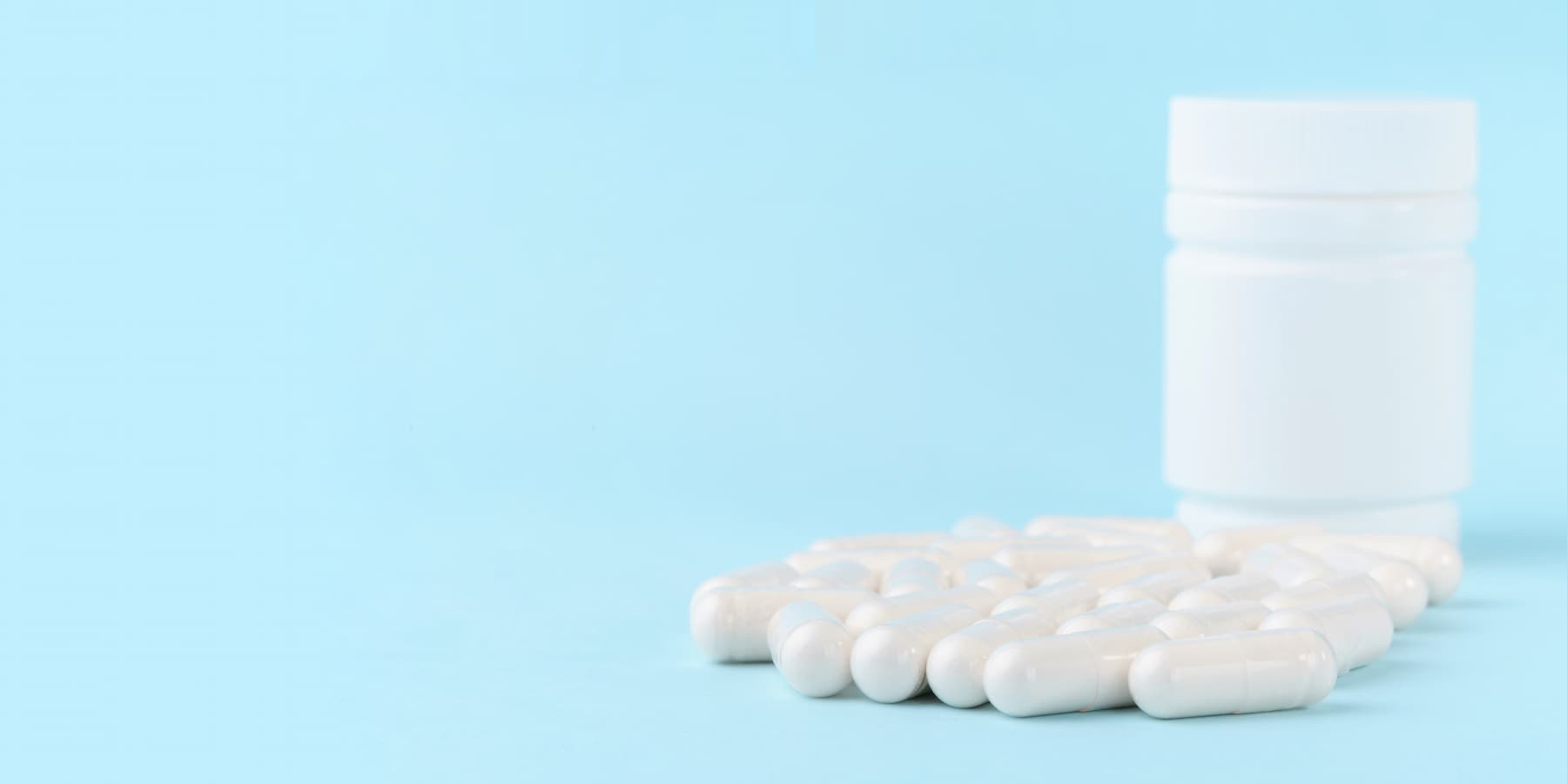
Chondroitin helps the joints and other elements of the body.

Glutathione is one of the most potent antioxidants for supporting the body's health. Find out how it works and where to get it from.

See why hip joints hurt and how to treat their ailments.
